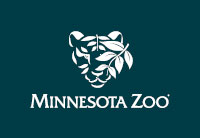The Minnesota Zoo’s 20th annual Farm Babies event is well underway – and the arrival of a new Shetland lamb this past weekend is making the event even cuter!
Domestic sheep are hooved mammals with woolly coats. Closely related to goats, they are “ruminants,” or animals that chew their cud. Sheep are grazing herbivores, eating grasses, weeds, herbs, and shrubs. On farms, they typically also eat corn, oats, barley, and wheat. Sheep are able to survive with only minimal water supplies but must have some salt in their diets.
Sheep, which are social animals living in flocks, live on all continents except Antarctica. Wherever they live, sheep adapt to their surroundings. Shetland sheep, like the ones at the Minnesota Zoo, are a hardy breed, well suited to the rugged Shetland Islands of Northeastern Scotland.
Know your Sheep Vocab!
Ewe: adult female
Ewe lamb: young female that has not given birth
Flock: group of sheep
Herd: group of sheep
Lamb: male or female, from birth to 12 months
Ram: uncastrated male
Ram lamb: young male
Shearlings: yearling that has been shorn once
Wether: castrated male
Yearling: male or female, age 12-24 months
Did you know?
- Shetland sheep love attention. They sometimes wag their tails when petted.
- One pound of sheep’s wool can produce as much as 10 miles of yarn!
- Ring shawls are shawls made from the finest Shetland wool—so fine that the woven shawl can pass through a ring.
- Both the Shetland sheepdog and Shetland sheep originated in the same place, on the Shetland Islands off the Northeastern coast of Scotland.
- Sheep, like dogs, pant when they are hot, but goats lack that ability.
- Sheep instinctively “follow the leader,” following the lead of a dominant animal, even if that means running off a cliff.
Farm Babies runs through April 30. Don’t miss our sheep, and adorable newborn lamb, this year! And, if you love lambs and other farm babies and are looking for a special once-in-a-lifetime experience for your family, register today for our upcoming Animals After Dark Family Zzzoo Overnight at the Wells Fargo Family Farm, April 29-30.
The Farm does so much to teach families about raising farm babies in a safe, friendly and sustainable way. To support education efforts and the growth of the farm in the future, consider making a gift to the farm today.




Get Social